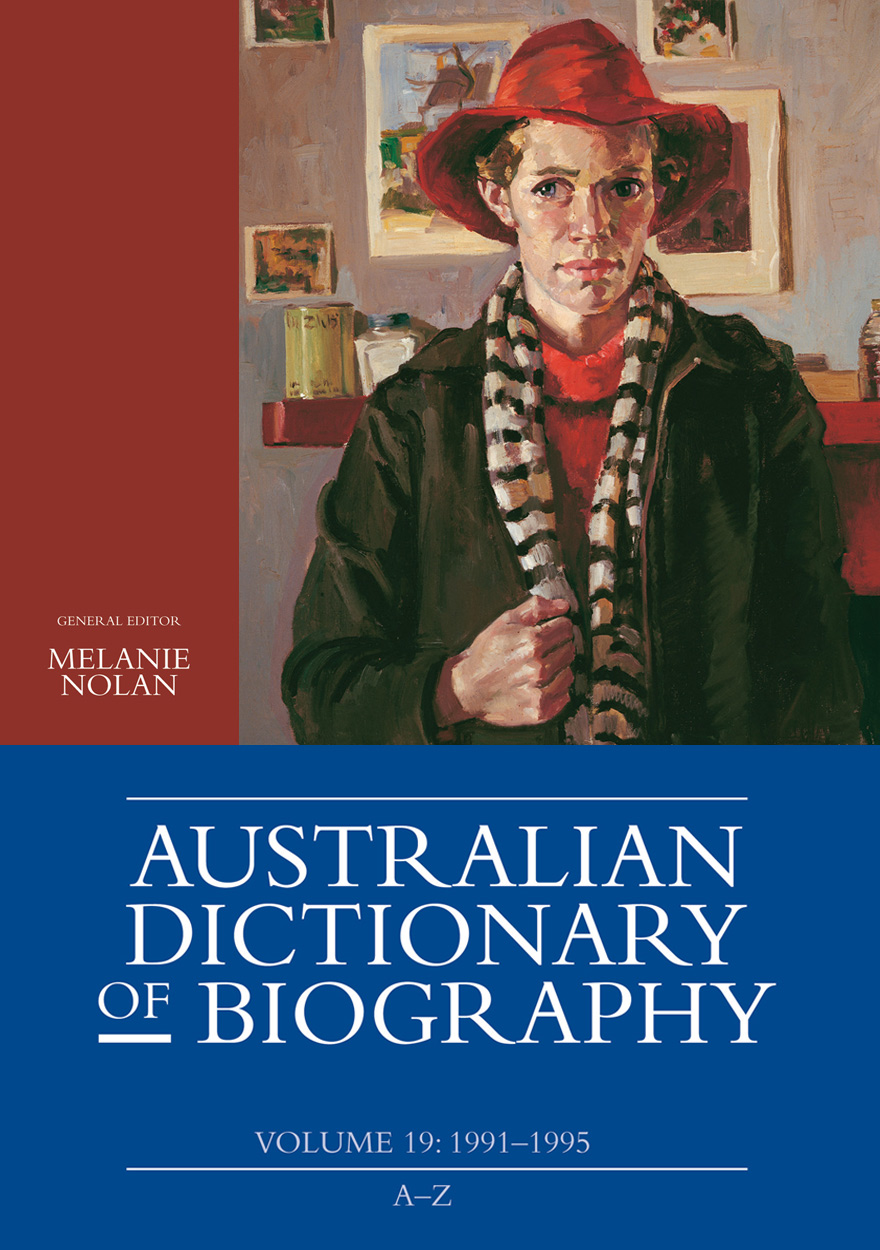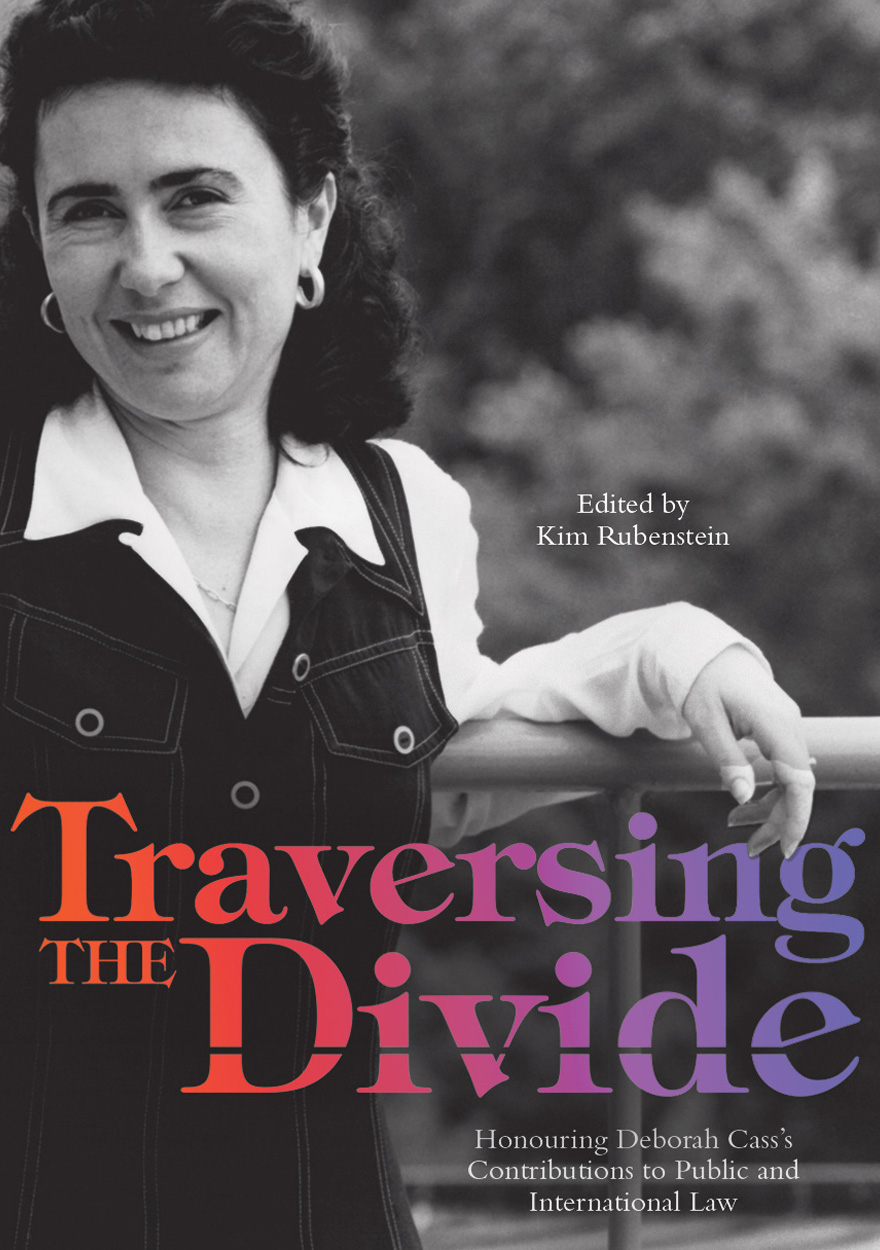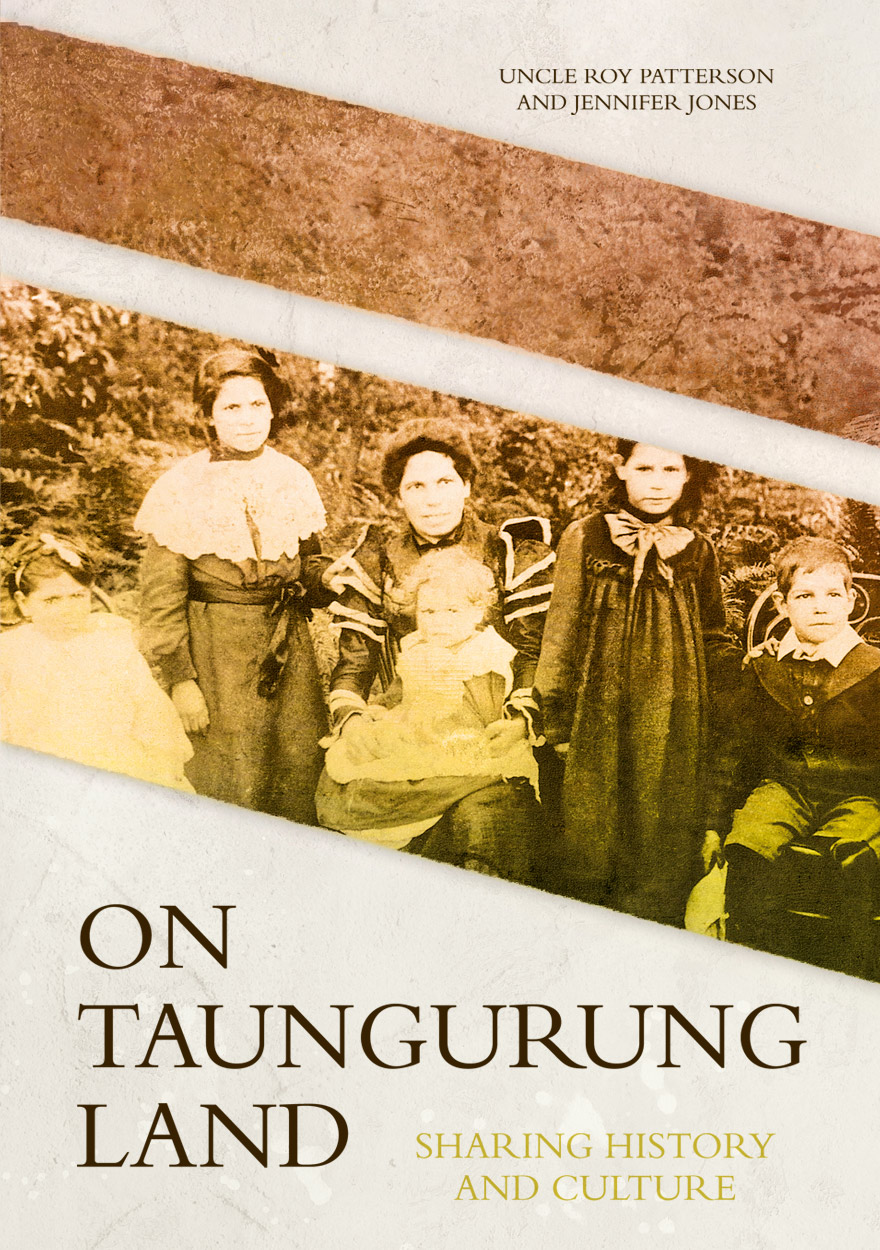Search titles
Displaying results 71 to 80 of 549.

Aboriginal History Journal: Volume 44 »
Edited by: Crystal McKinnon, Ben Silverstein
Publication date: May 2021
In this volume, Charlotte Ward’s narration of re-enactments of the Endeavour’s landing in Cooktown traces local processes of engaging with and producing histories that bring together stories of that landing with the much longer story of Guugu Yimithirr sovereignty. Heather Burke, Ray Kerkhove, Lynley A. Wallis, Cathy Keys and Bryce Barker analyse the extent of fear on the Queensland frontier through a historical and archaeological study of homes and huts and their fortification. In a collaborative article, Myfany Turpin, Felicity Meakins, Marie Mudgedell, Angie Tchooga and Calista Yeoh consider three performances of Puranguwana, a ‘classical’ Western Desert song that emerges from the death of Yawalyurru, a Pintupi man. Paige Gleeson offers us a new perspective on the well-known image of Warlpiri-Anmatyerr man Gwoja Tjungurrayi, known since the 1950s as ‘One Pound Jimmy’, an image featured on postage stamps and on the two dollar coin. And Gretchen Stolte’s study of Queensland Aboriginal Creations situates the production of boomerangs for sale as work of cultural importance, enriching understandings of Aboriginal artwork and its production.
Download for free
Not available for purchase

Learning Policy, Doing Policy »
Interactions Between Public Policy Theory, Practice and Teaching
Publication date: March 2021
When it comes to policymaking, public servants have traditionally learned ‘on the job’, with practical experience and tacit knowledge valued over theory-based learning and academic analysis. Yet increasing numbers of public servants are undertaking policy training through postgraduate qualifications and/or through short courses in policy training.
Learning Policy, Doing Policy explores how policy theory is understood by practitioners and how it influences their practice. The book brings together insights from research, teaching and practice on an issue that has so far been understudied. Contributors include Australian and international policy scholars, and current and former practitioners from government agencies. The first part of the book focuses on theorising, teaching and learning about the policymaking process; the second part outlines how current and former practitioners have employed policy process theory in the form of models or frameworks to guide and analyse policymaking in practice; and the final part examines how policy theory insights can assist policy practitioners.
In exploring how policy process theory is developed, taught and taken into policymaking practice, Learning Policy, Doing Policy draws on the expertise of academics and practitioners, and also ‘pracademics’ who often serve as a bridge between the academy and government. It draws on a range of both conceptual and applied examples. Its themes are highly relevant for both individuals and institutions, and reflect trends towards a stronger professional ethos in the Australian Public Service. This book is a timely resource for policy scholars, teaching academics, students and policy practitioners.

Australian Dictionary of Biography, Volume 19 »
1991–1995 (A–Z)
Edited by: Melanie Nolan
Publication date: March 2021
Volume 19 of the Australian Dictionary of Biography (ADB) contains concise biographies of individuals who died between 1991 and 1995. The first of two volumes for the 1990s, it presents a colourful montage of late twentieth-century Australian life, containing the biographies of significant and representative Australians.
The volume is still in the shadow of World War II with servicemen and women who enlisted young appearing, but these influences are dimming and there are now increasing numbers of non-white, non-male, non-privileged and non-straight subjects.
The 680 individuals recorded in volume 19 of the ADB include Wiradjuri midwife and Ngunnawal Elder Violet Bulger; Aboriginal rights activist, poet, playwright and artist Kevin Gilbert; and Torres Strait Islander community leader and land rights campaigner Eddie Mabo. HIV/AIDS child activists Tony Lovegrove and Eve Van Grafhorst have entries, as does conductor Stuart Challender, ‘the first Australian celebrity to go public’ about his HIV/AIDS condition in 1991.
The arts are, as always, well-represented, including writers Frank Hardy, Mary Durack and Nene Gare, actors Frank Thring and Leonard Teale and arts patron Ian Potter. We are beginning to see the effects of the steep rise in postwar immigration flow through to the ADB. Artist Joseph Stanislaw Ostoja-Kotkowski was born in Poland. Pilar Moreno de Otaegui, co-founded the Spanish Club of Sydney. Chinese restaurateur and community leader Ming Poon (Dick) Low migrated to Victoria in 1953.
Often we have a dearth of information about the domestic lives of our subjects; politician Olive Zakharov, however, bravely disclosed at the Victorian launch of the federal government’s campaign to Stop Violence Against Women in 1993 that she was a survivor of domestic violence in her second marriage.
Take a dip into the many fascinating lives of the Australian Dictionary of Biography.

Traversing the Divide »
Honouring Deborah Cass’s Contributions to Public and International Law
Edited by: Kim Rubenstein
Publication date: March 2021
‘While devoting fine attention to the stuff of everyday life, Deborah Cass was also a brilliant scholar. Although the deep sense of loss and sadness at Deborah’s death remains, it is wonderful to have her writings as a continuing source of inspiration and consolation. In them, we continue to hear Deborah’s firm, clear voice, her appreciation of language, her seriousness, her curiosity, her sensitivity and her wry humour.’
—Professor Hilary Charlesworth
This collection honours the work of Deborah Cass, 15 February 1960 – 4 June 2013, a brilliant Australian constitutional and international lawyer. Deborah studied at the University of Melbourne and Harvard Law School and taught at Melbourne Law School, The Australian National University and the London School of Economics. A member of The Australian National University’s Centre for International and Public Law from 1993 to 2000, Deborah’s work offered illuminating new perspectives in a range of fields, from the right to self-determination, critical international legal theory, and feminist legal theory to the international trade law system. The title of this edited collection draws on one of her articles, ‘Traversing the Divide: International Law and Australian Constitutional Law’ (1998) 20 Adelaide Law Review 73. This book evolves from a symposium held to draw together academics from around the globe to reflect on Deborah’s extensive scholarship and contributions to public law and international law, and to examine how her work is of value to current domestic and international law issues. The pieces selected for this volume both remind us of Deborah’s outstanding academic career and provide important insights on current public law and international law pressing issues.

At Home in Exile »
A Memoir
Authored by: Helga M Griffin
Publication date: February 2021
This is a story of a girl’s construction of her identity, and of her family’s search for a place in the world, for the Heimat that is so resonant for those of German background. We follow Helga through an adventurous childhood in Iran, whose vast open spaces her mother called ‘my spiritual home’. Her engineer father worked on a grand scale, designing and laying roads and railways, and tunnelling through mountain ranges. Then came the invasions of World War II, and the family, half-German, half-Austrian, found themselves on a long voyage to Australia, designated enemy aliens. They were interned for nearly five years in the dusty Victorian countryside. On their release at the end of the War, stranded in Melbourne, they sought another home. The children were dispatched to convents, and at the Academy of Mary Immaculate, Helga found a temporary homeland, in faith.
Everyday life in the Australia of the late 1940s and early 1950s is freshly seen by this feisty, loving migrant family. Through their eyes, we encounter a strange place, Australia, as if for the first time. Helga’s development from a thoughtful, sensitive child to a self-possessed young woman, wrestling with her faith and with how to live a decent life, is vividly recounted.

Refugee Journeys »
Histories of Resettlement, Representation and Resistance
Edited by: Jordana Silverstein, Rachel Stevens
Publication date: February 2021
Refugee Journeys presents stories of how governments, the public and the media have responded to the arrival of people seeking asylum, and how these responses have impacted refugees and their lives. Mostly covering the period from 1970 to the present, the chapters provide readers with an understanding of the political, social and historical contexts that have brought us to the current day. This engaging collection of essays also considers possible ways to break existing policy deadlocks, encouraging readers to imagine a future where we carry vastly different ideas about refugees, government policies and national identities.

Agenda - A Journal of Policy Analysis and Reform: Volume 27, Number 1, 2020 »
Edited by: William Coleman
Publication date: December 2020
Agenda is a refereed, ECONLIT-indexed and RePEc-listed journal of the College of Business and Economics, The Australian National University. Launched in 1994, Agenda provides a forum for debate on public policy, mainly (but not exclusively) in Australia and New Zealand. It deals largely with economic issues but gives space to social and legal policy and also to the moral and philosophical foundations and implications of policy.
Subscribe to the Agenda Alerting service if you wish to be advised on forthcoming or new issues.
Download for free
Not available for purchase

Aboriginal History Journal: Volume 43 »
Edited by: Ingereth Macfarlane
Publication date: December 2020
Volume 43 opens with an unexpectedly timely essay. Tom Gara’s study of the influenza epidemic that reached Australia in 1919 expands consideration of its global effects to include the poorly documented impacts on Aboriginal people in South Australia. The study was written and finalised to mark the centenary, prior to the advent of the 2020 Coronavirus pandemic. In this dramatically altered context, Gara’s evidence becomes significantly comparative as well as an account of an under-researched aspect of past infectious disease spread.
Annemarie McLaren’s article poses questions about the differing assumptions Aboriginal men and colonists made about their earliest travels together in country around Sydney Cove in 1791. McLaren interrogates Watkin Tench’s and John Hunter’s accounts of their joint travels with Colebee and Balloderry to explore how ‘guiding’ relationships first developed between Aboriginal people and expeditionary parties in New South Wales.
Grace Karskens’ conversation with Mark McKenna about her engagement with the story of Nah Doong, a nineteenth-century Aboriginal woman living in colonial Penrith, NSW, offers ‘a masterclass in how to write history’. Careful reading against the grain brings Nah Doong’s experience alive in a rare, fleshed-out biographical picture of an individual woman.
‘Big John Dodo’ (c. 1910–2003) is respected as a ceremonial and cultural leader for Karajarri country, south of Broome, WA. Darren Jorgensen draws on family and personal interviews to re-position John Dodo Nangkiriny’s ‘transitional’ art forms, which do not emulate pre-colonial or contemporary forms and are produced with new materials.
Beth Marsden provides a close reading of the campaign to resist construction of a ‘transit village’ in Morwell, Victoria, in the 1960s, illuminating various strands of assimilationist policy as well as multilayered political and grassroots resistance.
Tim Rowse and Barry Leithhead re-examine the underlying assumptions held by Dr Cecil Cook in his career as a Northern Territory administrator and commentator (1925–69). Demonstrating the relationship between racial thought and liberalism in Cook’s policies and advocacy, they argue that Cook’s common function as a shorthand for ‘ideologies, policies and practices of government that seem at best misguided and at worst cruel and racist’ needs re-evaluation.
In addition to a wide range of book reviews, this volume also has a review of the important Songlines: Tracking the Seven Sisters exhibition.
Download for free
Not available for purchase

Niche Wars »
Australia in Afghanistan and Iraq, 2001–2014
Publication date: 2020
Australia invoked the ANZUS Alliance following the Al Qaeda attacks in the United States on 11 September 2001. But unlike the calls to arms at the onset of the world wars, Australia decided to make only carefully calibrated force contributions in support of the US-led coalition campaigns in Afghanistan and Iraq. Why is this so?
Niche Wars examines Australia’s experience on military operations in Afghanistan and Iraq from 2001 to 2014. These operations saw over 40 Australian soldiers killed and hundreds wounded. But the toll since has been greater. For Afghanistan and Iraq the costs are hard to measure. Why were these forces deployed? What role did Australia play in shaping the strategy and determining the outcome? How effective were they? Why is so little known about Australia’s involvement in these campaigns? What lessons can be learned from this experience?
Niche Wars commences with a scene-setting overview of Australia’s military involvement in the Middle East over more than a century. It then draws on unique insights from many angles, across a spectrum of men and women, ranging from key Australian decision makers, practitioners and observers. The book includes a wide range of perspectives in chapters written by federal government ministers, departmental secretaries, service commanders, task force commanders, sailors, soldiers, airmen and women, international aid workers, diplomats, police, journalists, coalition observers and academics.
Niche Wars makes for compelling reading but also stands as a reference work on how and why Australia became entangled in these conflicts that had devastating consequences. If lessons can be learned from history about how Australia uses its military forces, this book is where to find them.

On Taungurung Land »
Sharing History and Culture
Authored by: Roy Henry Patterson, Jennifer Jones
Publication date: December 2020
On Taungurung Land: Sharing History and Culture is the first monograph to examine how the Taungurung Nation of central Victoria negotiated with protectors and pastoralists to retain possession of their own country for as long as possible. Historic accounts, to date, have treated the histories of Acheron and Mohican Aboriginal stations as preliminary to the establishment of the more famous Coranderrk on Wurundjeri land. Instead of ‘rushing down the hill’ to Coranderrk, this book concentrates upon the two foundational Aboriginal stations on Taungurung Country. A collaboration between Elder Uncle Roy Patterson and Jennifer Jones, the book draws upon Taungurung oral knowledge and an unusually rich historical record. This fine-grained local history and cultural memoir shows that adaptation to white settlement and the preservation of culture were not mutually exclusive. Uncle Roy shares generational knowledge in this book in order to revitalise relationships to place and establish respect and mutual practices of care for Country.



